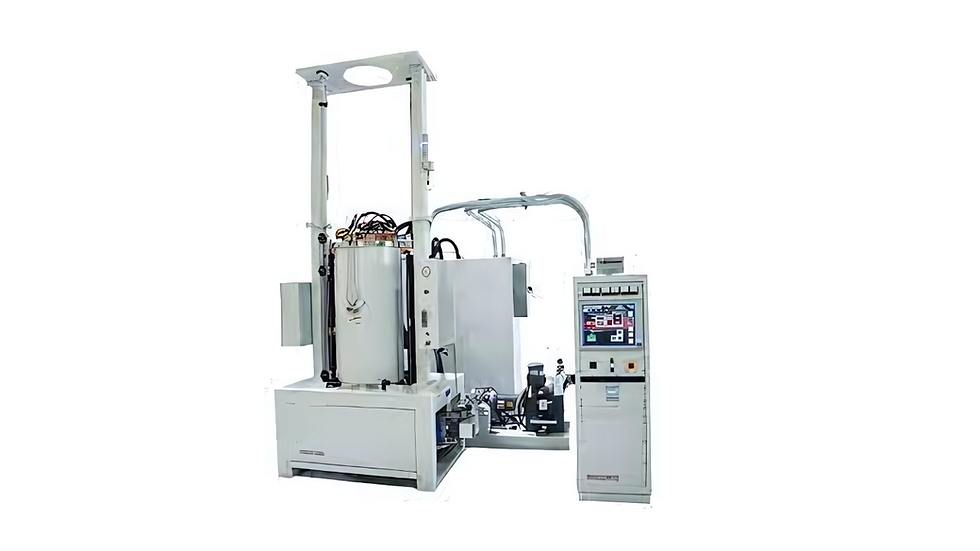How to Choose the Right Vacuum Pump for Your Business
- dayvette2022
- Jun 10, 2021
- 4 min read
Choosing a vacuum pump for your business can be a difficult task. If you don't know what to look for, it's easy to end up with a pump that is not going to last. In this article, I hope to give you some tips that will help you choose the right vacuum pump for your business. The right vacuum pump can play a vital role in ensuring that your business is operating at maximum efficiency. But how do you know which one you need? Find out here.

First, let's look at some important considerations when choosing a vacuum pump for your business. All of the above factors should be considered when you are choosing the right vacuum pump for your business. If you are looking to buy any vacuum pumps today, you should only focus on these factors. Otherwise, you risk finding a pump that is dated, very inefficient, or only partially functional.
Some simple considerations, always keep in mind:
Let’s now look at some important factors you should consider when choosing a vacuum pump for your business! All this means is that vacuum pumps can only last so long. It’s vital that you grab that opportunity to upgrade as soon as possible. Many vacuum pumps have a specific operating range and usage rate that you can choose from.
For example, in my home, I have the Heisenberg vacuum pump. It has a very low range, which means that you only use it if you have to. It has a much higher usage rate, which means that you can pump several loads at a time. When choosing a vacuum pump of any type for your business and your customers, always try to get it in the realm of 10 to 20 cycles or 20 to 30 loads at a time. That’s what my business uses currently and this is also what our potential customers use as well.
There are lots of different factors when selecting a vacuum pump for your business: 6 to be exact. However, trying to dodge some of the more common questions is quite essential when you’re starting out. This might seem like an unnecessary section, but I built this section into the articles in case you ever get stuck.
With that being said, my next section will look at the main questions you should ask yourself when buying a vacuum pump for your business. Then do some basic research on the internet to understand your competitive alternatives. If you are already thinking about buying a vacuum pump, you know that it will offer a lot of benefits to you. For example, you need to decide on your floor plan and where you want to place the vacuum pump. You will also need to choose between different sizes of pumps for your particular vacuum application.
My experience as a commercial sales consultant has helped me discover troublesome vacuum pumps and determine which ones need attention. By doing so, I was able to save some customers’ money and the life of my business’ vacuum pump.
How to choose the right vacuum pump for your business
Before we go into the different types of vacuum pumps, let’s look at some key points to keep in mind. As a general rule of thumb, you should avoid buying two of the same brand, rather than buying three different brands of vacuum pump. Two different brands of vacuum pumps may struggle to meet the expected performance standards of whatever you’re vacuuming.
Additionally, reliable vacuum pumps are expensive to buy and maintain. And because of their unique characteristics, they don’t make good investments for businesses that have standard shop floor operations only — they’re usually not practical for a smaller business like yours. Generally speaking, the higher the capacity of your pump, the better. It’s essential for vacuum pumps to be able to manage larger volumes. For example, the larger the capacity, the more suction the vacuum pump can pull out of a container, the better. Standard vacuum pumps will usually perform much better in vacuum applications than larger capacity vacuum pumps.

Larger vacuum pumps usually have cleaner operation, too. This kind of vacuum pump may take more time to charge before it can be used, and cleaning that process up can take longer. On the other hand, faster getting to vacuum operation and better-performing vacuums may mean that pulling vacuum may not be so necessary.
Manual suction pumps will tend to perform better in applications with larger containers (containers that hold more liquid) that require precise control of the pressure applied to the fluid. While it is possible to bypass that control with a digital controller, it’s generally slower and more cumbersome to use.
Despite what you may think, speed isn’t everything. Low-power vacuum pumps are only good for powering a single vacuum on-cycle. They will not be able to suck up and suck up and suck up a lot of liquid at the same time. This is great for slow vacuums and condensation removal, but not ideal for very high-speed vacuums or for applications where the liquid is being moved at high speed.



Comments